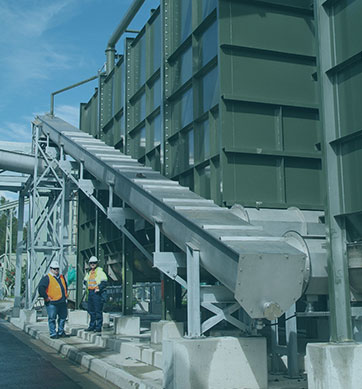- Europe News
- Shaftless Spiral Conveyors

Shaftless spiral conveyors are designed for the transport of otherwise difficult to handle materials, such as municipal dewatered sludge, wastewater screenings, grit, industrial sludges or other sticky, viscous, stringy materials. Available in two designs, U-trough for horizontal or inclines up to 30 degrees and octagonal (OK-trough) for steeper inclines or vertical transport.
A shaftless screw conveyor can run up to 100% full, utilizing an almost full cross-section of a trough, no restrictions to impede material flow. If you are looking to transport up to 140m3/hr (5000 ft3/hr) shaftless spiral conveyors are the right choice for you.
When designing a shaftless screw conveyor system the following factors need to be considered:
1. Trough Size, length and design
2. Spiral diameter, pitch and model
3. Motor power and gearbox RPM
4. Conveyed material characteristics
5. Elevation angle of the conveyor
6. Feed method
Today we want to talk about different types of spirals that can be used to achieve the material handling results.
If you are looking to transport easy to transport material horizontal or at a slight incline, we recommend a single section spiral. This kind of spiral is the lightest spiral type and can be used in applications with short lengths and low torque. The addition of a welded insert increases strength and efficiency by reducing material "fallback". It is commonly used for horizontal conveying and for inclines up to 45 degrees. This spiral is suitable for most applications including inclined conveying to transport sludges, screenings and grit. Especially sticky material, for example, some lime amended sludges, where a buildup of product under the spiral is a risk, we would recommend spirals with inserts and a scraping edge.
The spiral types mentioned above are only the basic types of shaftless screw conveyors we offer. There is also a wide choice of element cross-sections and spiral pitches and diameters to optimally match the required torque and performance parameters to your application.
Selecting the right spiral type is crucial. Talk to us about which spiral type will be right for you.










